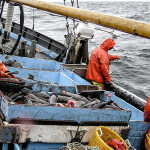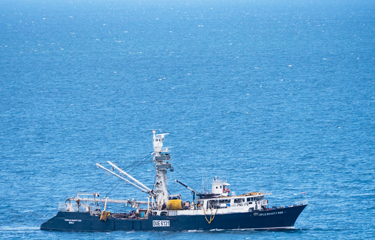Pacific Fisheries officials, on 21 May, extended a suspension of 100 percent observer coverage requirements on all purse-seiners fishing in the waters of member-nations to 31 July.
The Western and Central Pacific Fisheries Commission (WCPFC), in a circular memo, endorsed the extension of the measure, stating that the “temporary suspension will apply to new trips after a vessel operator has met any requirement for repatriation of observers currently onboard a vessel.”
As part of the temporary suspension, vessel monitoring system (VMS) requirements that apply to purse-seine vessels during FAD closure periods will also apply to purse-seine vessels that are not carrying observers.
“This decision takes effect immediately once the commission has endorsed it. The commission will review its decision by 31 July, 2020. In undertaking such review, the commission should take into consideration Article 30 of the convention and the safety and livelihoods of ROP observers, in particular SIDS observers,” WCPFC Chair Jung-re Riley Kim said in the memo.
In March, member countries of the Parties to the Nauru Agreement (PNA), Pacific Islands Forum Fisheries Agency member countries, and the WCPFC agreed to allow all purse-seine vessel owners and fishing companies operating in the Pacific waters to continue fishing without observers, to avoid disruption in operations as a result of COVID-19.
The temporary suspension of the observer coverage requirements was slated to end on 31 May, but with fishing ports continuing to be affected by border closures, and the fact that the global pandemic is still ongoing, the suspension was extended.
FFA Director-General Manu Tupou-Roosen said despite the challenges, FFA will continue to monitor and control fishing of the world’s largest tuna stocks.
“Stopping the use of observers onboard fishing vessels during the coronavirus crisis does not mean that illegal fishing will go unchecked,” she said in a statement.
She added FFA is supporting Pacific countries with other tools such as VMS surveillance operations and data analysis to ensure that fishing vessels are monitored.
“FFA member countries have responsibilities for the safety and health of observers, who are their citizens, often traversing international borders and regions, and to uphold national border control and shutdowns,” Tupou-Roosen said. “This is the primary reason that the use of observers has been suspended, and in the meantime other monitoring, control, and surveillance tools will help ensure that fishing vessels are monitored, and that action can be taken if required.”
Officials Forum Fisheries Committee Chair Eugene Pangelinan, in the same statement, said that it is paramount that fishing continue within the exclusive economic zones of Pacific Island countries, where licensing and access fees are a major source of government revenue.
“Our intent is to do everything we can to minimize disruption of fishing operations in a manner where we can still monitor such operations, despite the COVID-19 situation,” Pangelinan said.
Fishing officials are alsow allowing vessels to transship at sea – in an area under the jurisdiction of a port state – due to port closures and relevant access restrictions related to the prevention of COVID-19.
The extended suspension of observer coverage comes at a time when environmental groups are increasingly cautioning against allowing transshipment to lead to illegal, unreported, and unregulated (IUU) fishing. Earlier in the COVID-19 crisis, 19 environmental organizations wrote a letter stating that removal of key monitoring, compliance, and surveillance (MCS) elements – like the observer coverage, bans on at-sea transshipment, port inspection, and high seas boarding and inspection – “would weaken the links that maintain the verifiability of fishing-related activities throughout the seafood supply chain.”
The joint letter, signed by organizations such as The Pew Charitable Trusts, Global Fishing Watch, Greenpeace, and WWF, said that the move “opens the door” to increased IUU fishing, and highlighted the threat of the suspension of key measures to the recovery and the resilience of fish stocks globally.
The organizations said fisheries managers will need to look into the impacts when developing emergency measures for the fishery, as IUU fishing worldwide is reported to already accounts for up to USD 23.5 billion (EUR 21.1 billion).
Tupou-Roosen, meanwhile, said while the fisheries observers are important in preventing IUU, other tools can play an important role in prevention measures, including electronic monitoring and reporting.
Tupou-Roosen added that next month, the response of the WCPFC, PNA, and FFA to the COVID-19 will be reviewed at a meeting of representatives of member-countries, and that a discussion of the impacts of the pandemic on current fishing management tools, and IUU fishing, is on the agenda.
Photo courtesy of Thor Jorgen Udvang/Shutterstock







